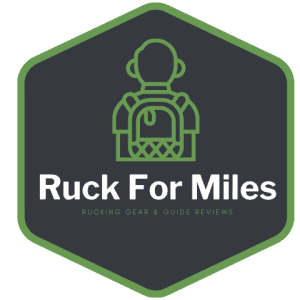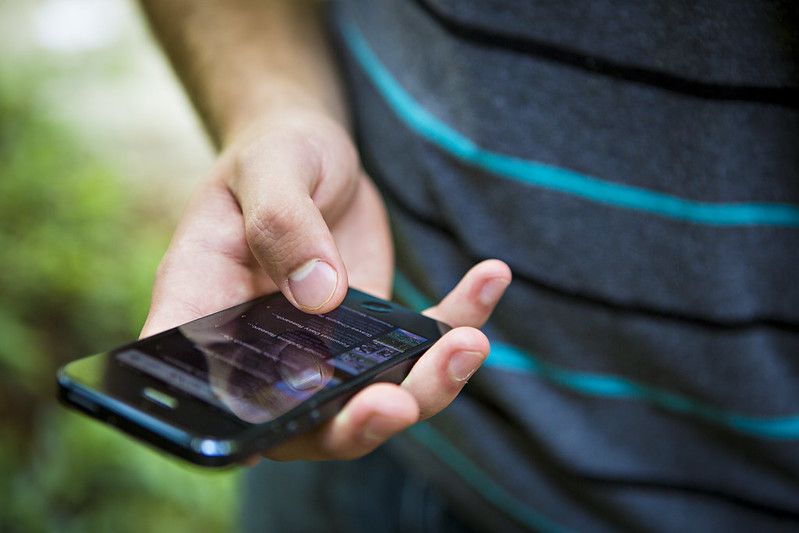
Here are the apps used for rucking:
| App Name | |
|---|---|
| 1. | Strava |
| 2. | Samsung Health |
| 3. | Apple Health |
In order to improve your rucking performance, it is key to track your rucks. Utilizing the stats and data from these apps can help give you insights into how long it takes you to ruck, whether you’re ready for the next ruck challenge, or if your ruck training or workout program is really working. Learn more about why rucking is a good workout.
In this post, I’ll review the apps that I use to track my rucks. I’ll also be including other apps that can be used for rucking.
1- Strava
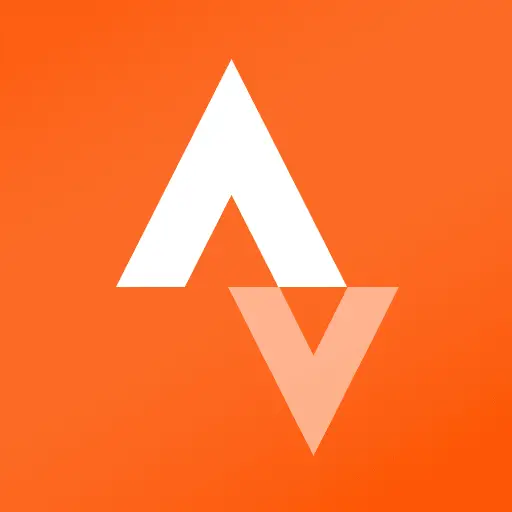
Strava is one of the most popular apps out there. Perhaps thats because everyone wants to share their route with their friends on social media, nevertheless, it works for rucking and it’s great.
We use the free version and its got the insights that we really care about. When choosing the activity, we used the hiking option when tracking our rucks since its the closest thing to it. Hiking and rucking are rather similar as a form of workout, learn more about the difference between rucking and hiking.
When it comes to tracking the weight carried in your rucksack, it doesnt have a field to track that. So what we recommend doing is adding that in the comment section under every recorded section so that you can look back at it later.
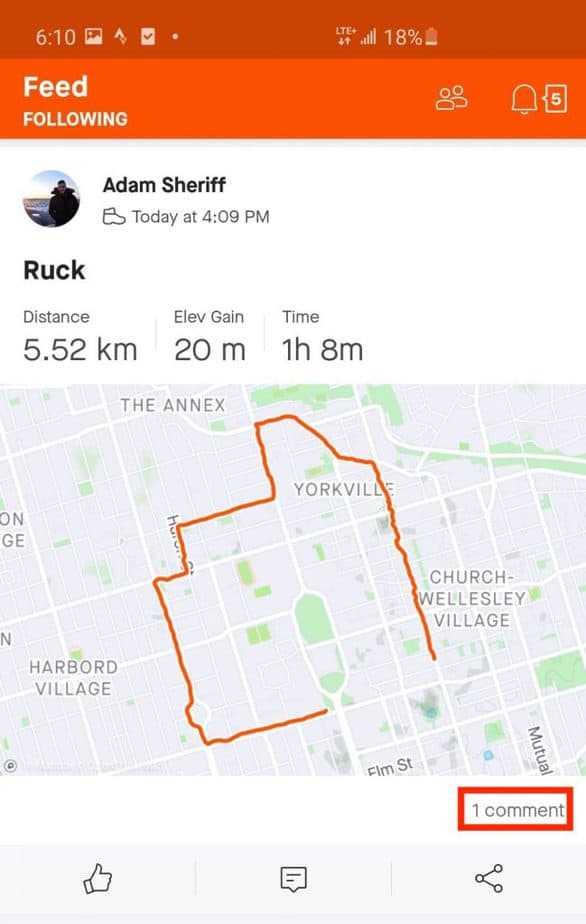
As soon as you click on the map, you can view all the of the following stats:
- Distance
- Elevation gain or loss (Uphill or Downhill)
- Time
- Speed
- Maximum Speed
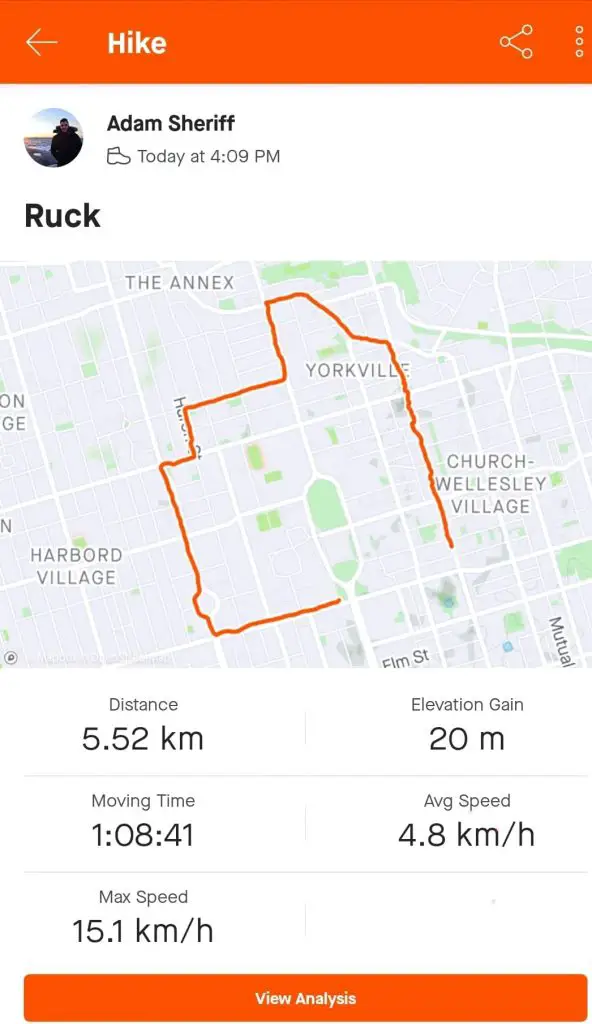
Tracking your distance, time, and speed are obviously important metrics to tracking your progress. The faster you can complete your ruck (carrying your target weight), the better.
What we find unique about Strava is that it takes into account your Elevation. This is especially important if you live in a place like San Fransisco where its full of hills. Tracking your rucks in uphill or downhill environments is crucial as you exert much more energy rucking uphill as opposed to rucking downhill or on a flat terrain.
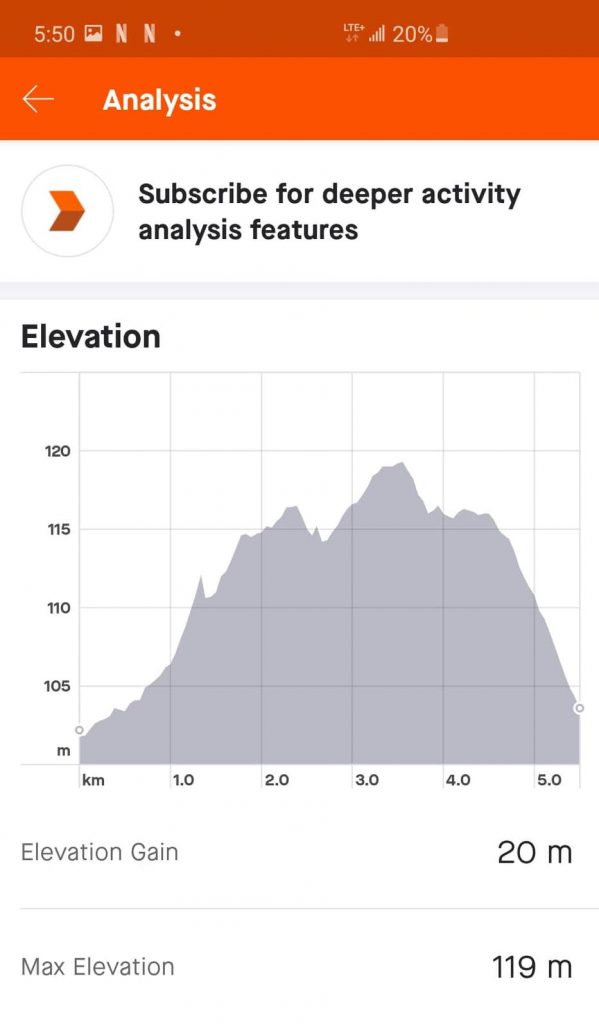
If you want a more detailed view of your metrics, clicking on the “View Analysis” button will show you much more detailed information such as a graph showing your pace during the entire workout. This is important for rucking as it will show you when your pace starts dropping off and the more you can push that, the faster your rucking pace will be.
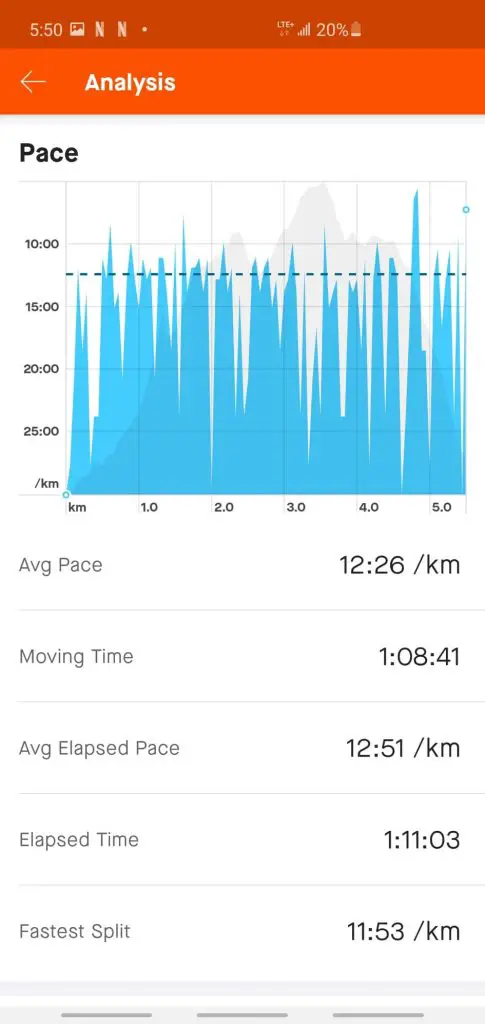
The free version does not include how many calories were burned, but we typically just use our rucking calculator to find out how many calories we burned rucking.
2- Samsung Health
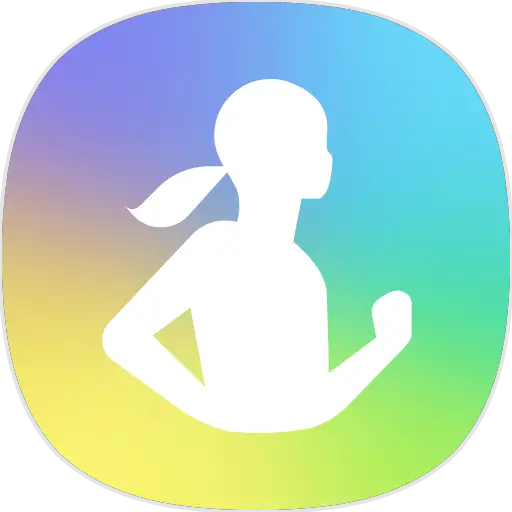
Most Samsung phones should have this already Built-in App. Similar to Strava, it too does not have a rucking option and therefore we do resort to plugging in our workout under the hiking category.
What we particularly like about the Samsung Health tracking app is that while we do use to track our rucking progress, it is much more comprehensive that Strava, in our opinion at least. You can track everything from your heartbeat, weight to how many glasses of water you had that day.
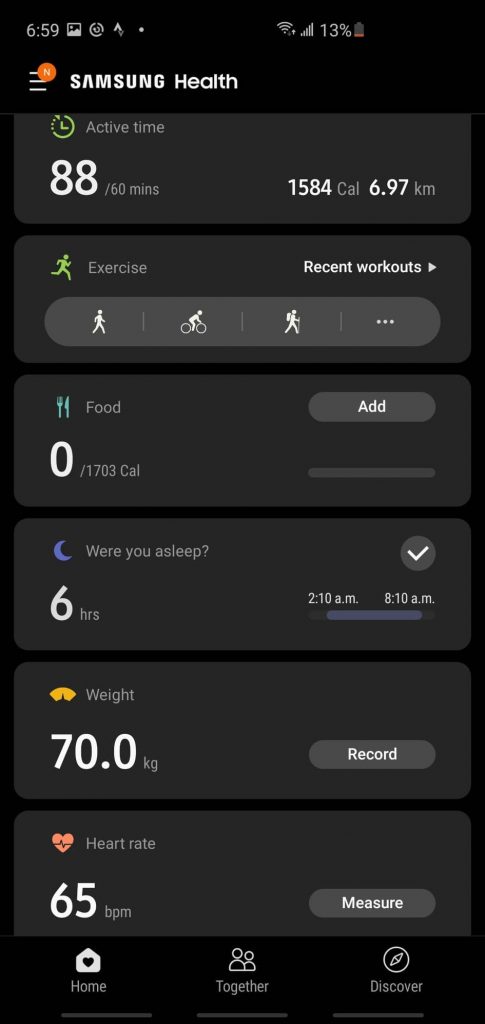
As for tracking your rucking performance, the stats provided are similar to Strava. If anything we do feel that Stravas interface is slightly more user friendly.
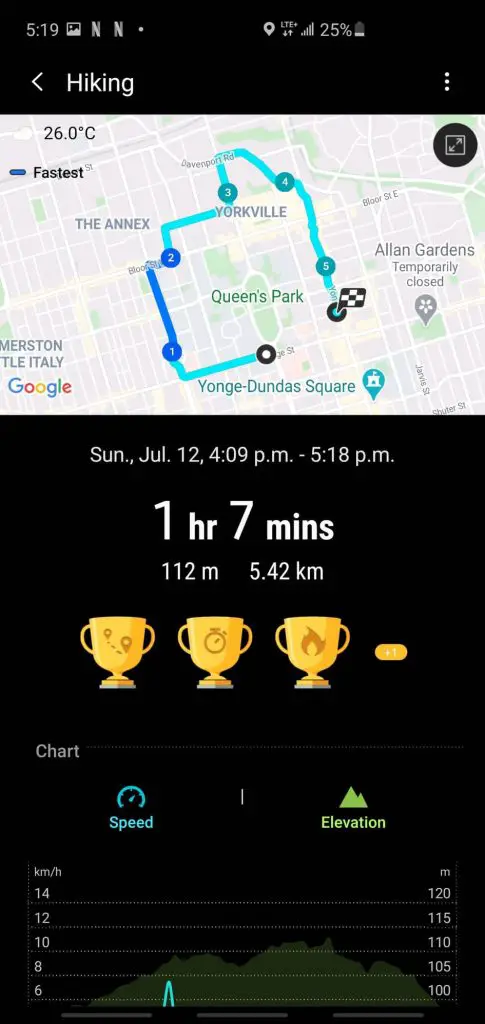
When scrolling down the results page, you can see detailed stats on your speed, elevation, time duration and more.
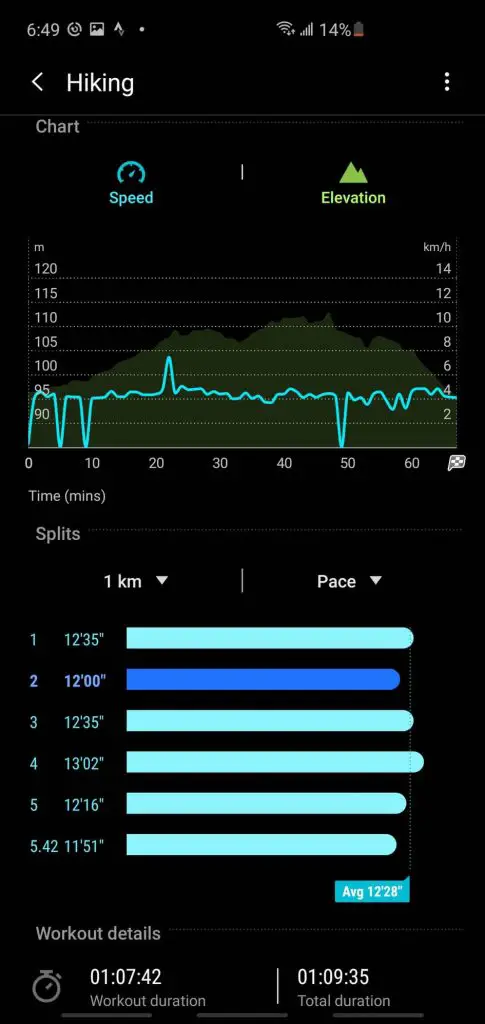
Another advantage of using Samsung Health is that you can pair it with a Samsungs smart watch, Samsung Gear and get the data straight to your wrist.
3- Apple Health
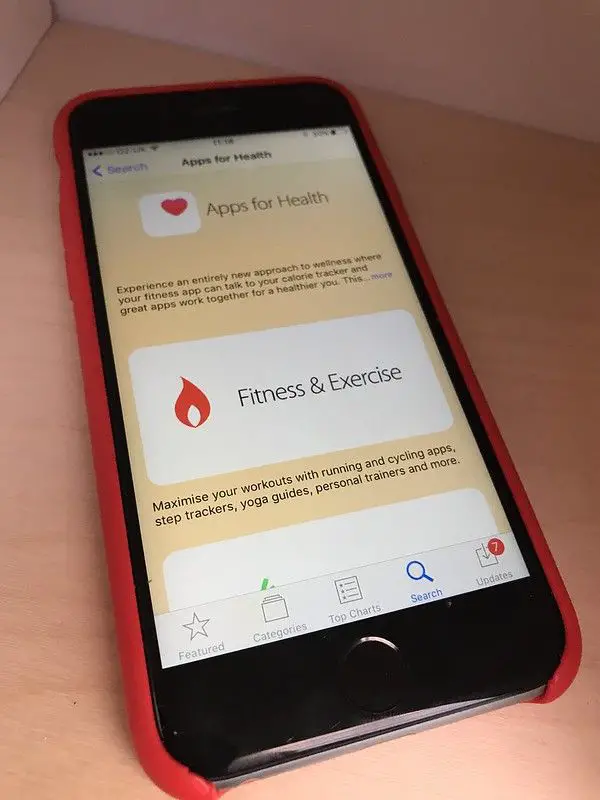
Similar to both Strava and Samsung Health, Apple Health does not have a rucking option and therefore we have to rely on the hiking option.
While we do not use Apple Health, it is a pretty good app. You can also pair it with your Apple watch. With Apple Health, you can:
- Track rucking pace
- Distance
- Elevation Gain
- Calories Burned
